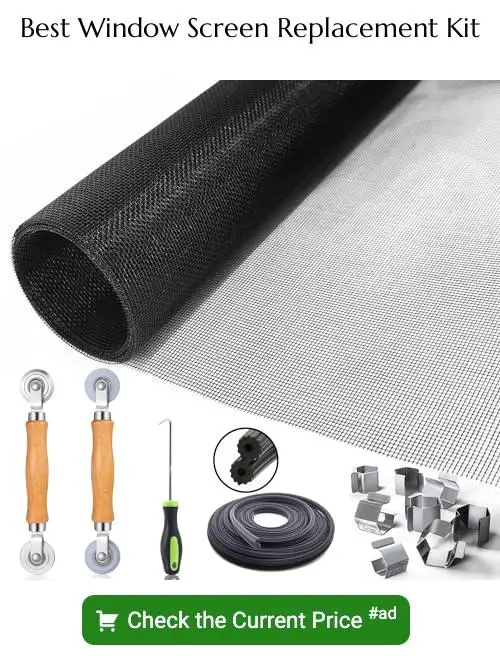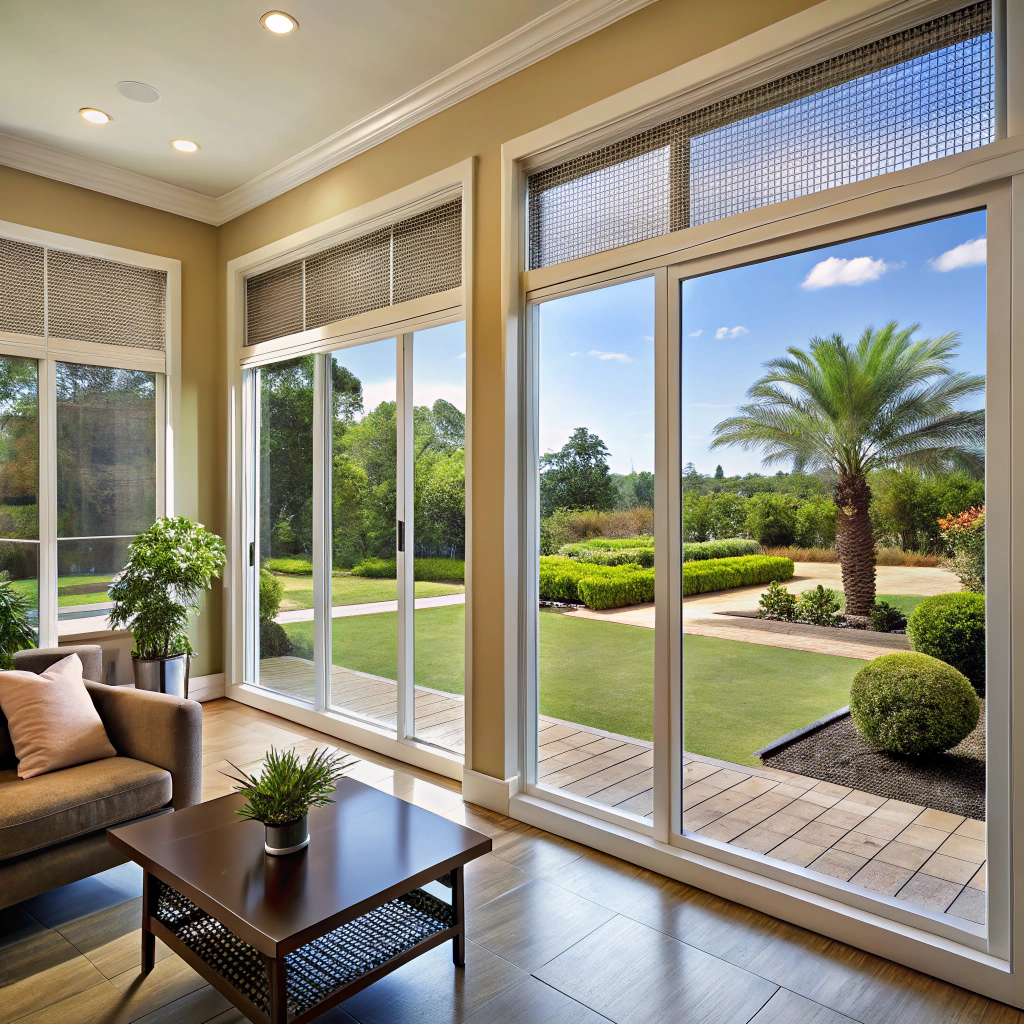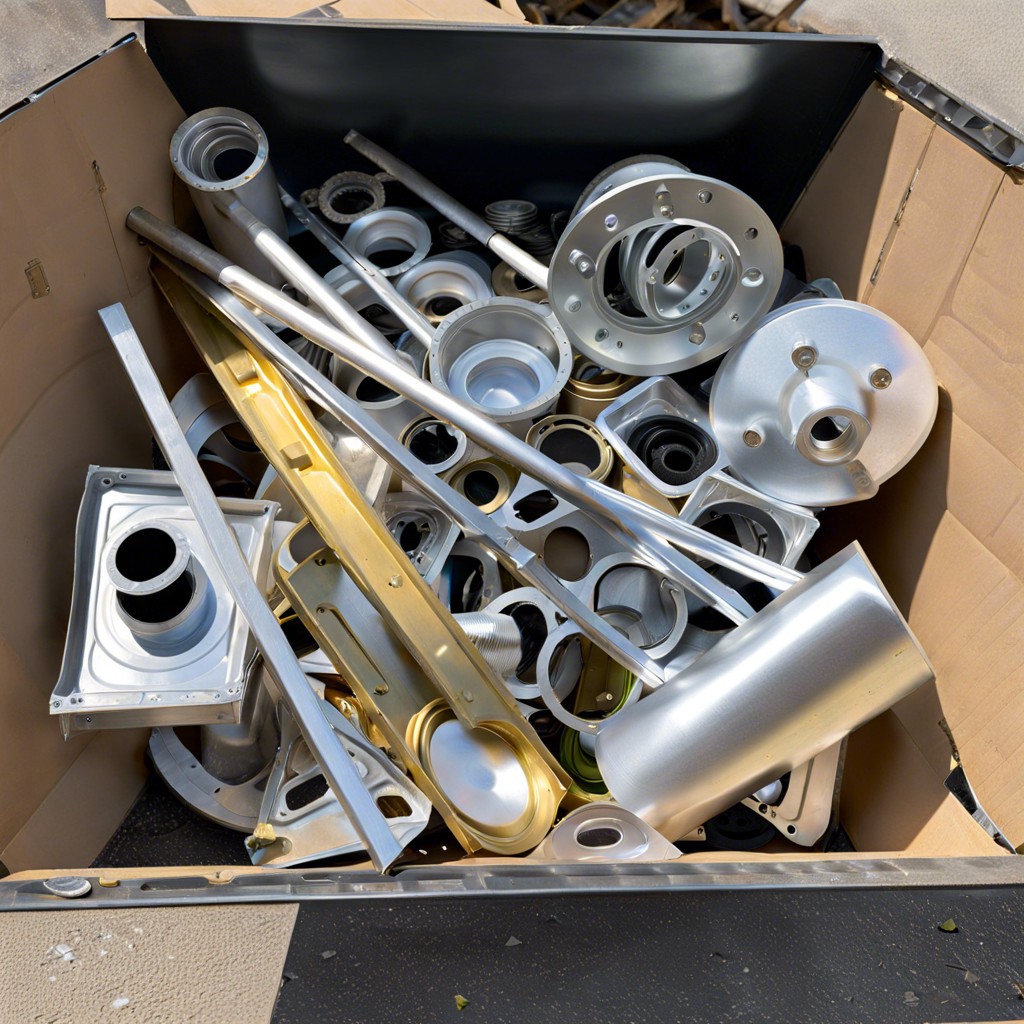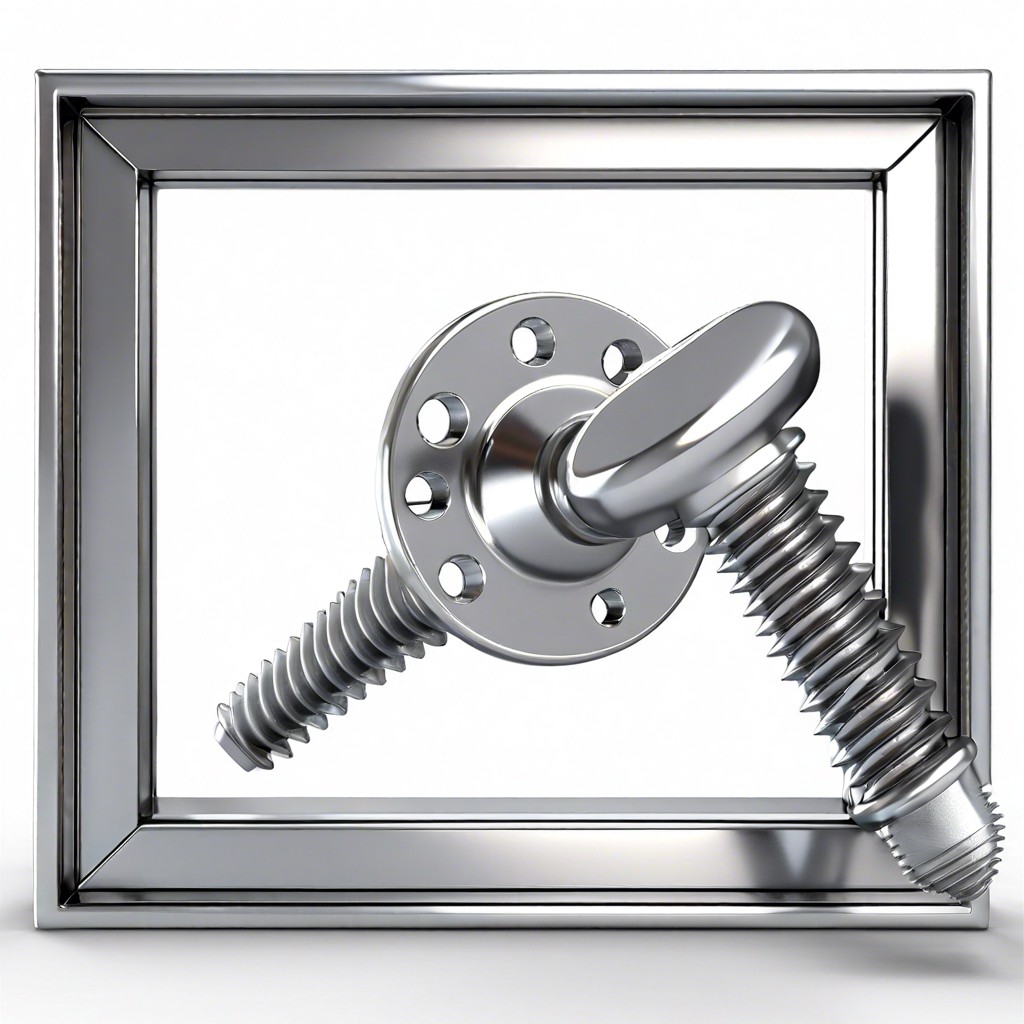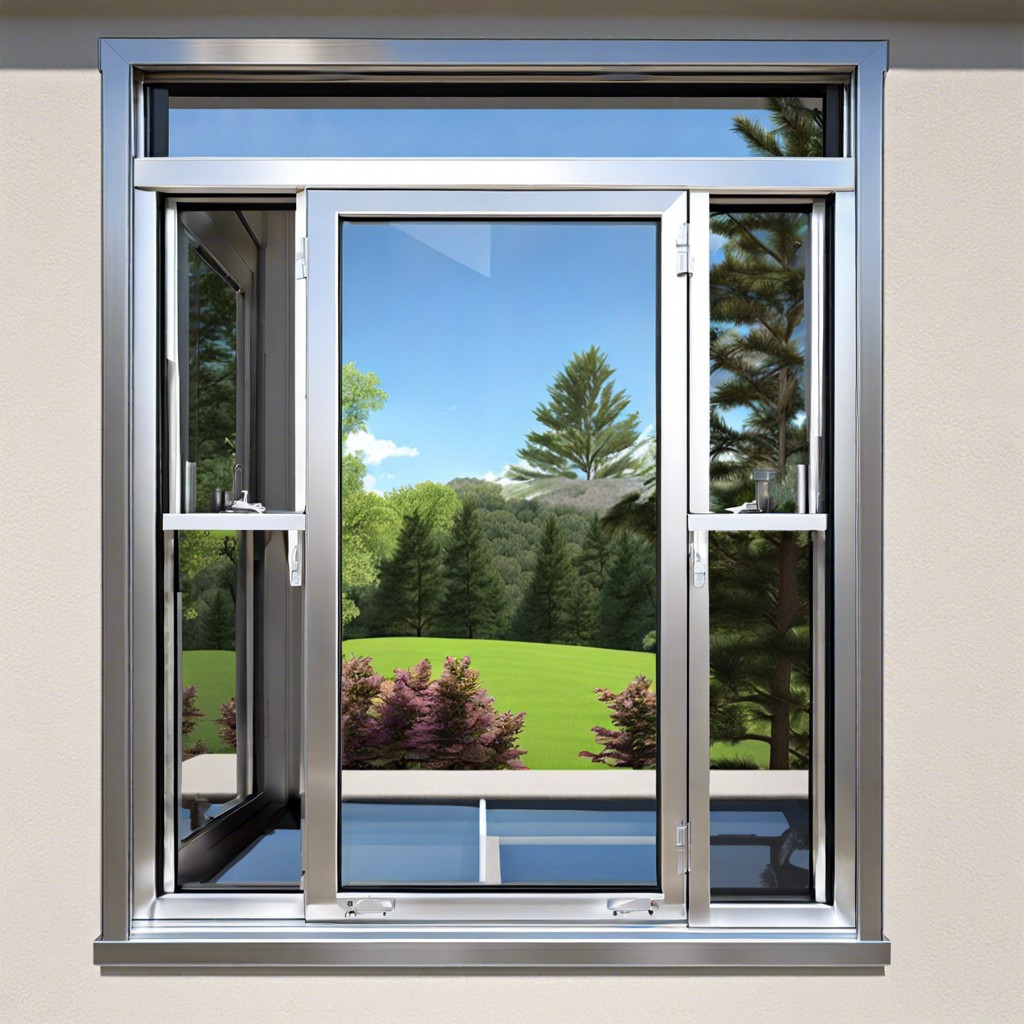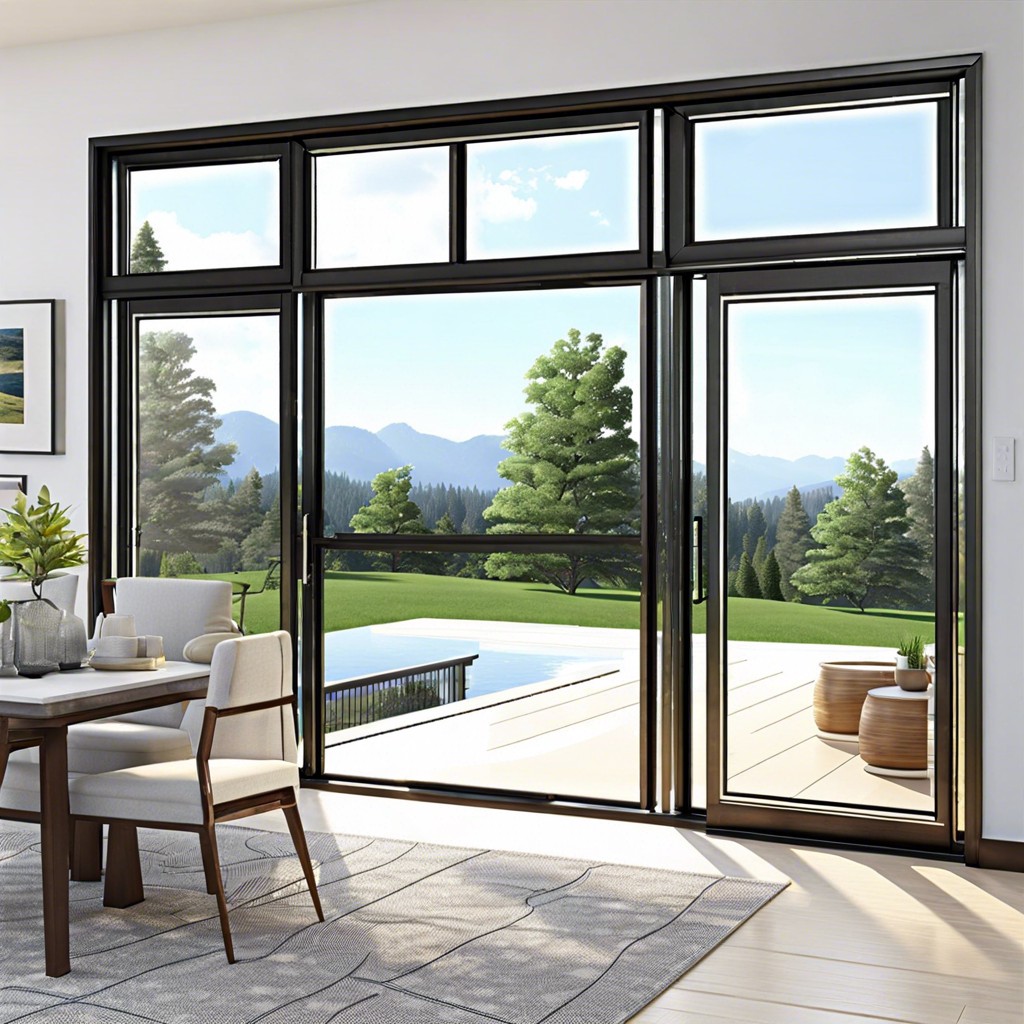Discover the various materials used in constructing window screens, providing you with fresh air and protection from unwanted insects.
Have you ever wondered what your window screens are made of? Are they made of some high-tech material that keeps bugs out and lets fresh air in? Or are they just a simple mesh fabric that gets the job done? Whatever your assumptions may be, the truth is that window screens come in different materials, each with its own set of advantages and disadvantages. As an expert on house windows, I’m here to share my industry knowledge with you.
In this blog post, we’ll explore the different types of materials used to make window screens and their pros and cons, so you can make an informed decision when it comes to choosing the right screen for your home. So let’s dive in!
Key takeaways:
- Fiberglass: Affordable, flexible, easy to install and maintain.
- Aluminum: Lightweight, durable, resistant to weather conditions.
- Solar mesh: Blocks UV rays, allows natural light in.
- Bronze mesh: Strong, durable, good visibility.
- Stainless steel: Resistant to corrosion, provides superior strength.
Common Materials
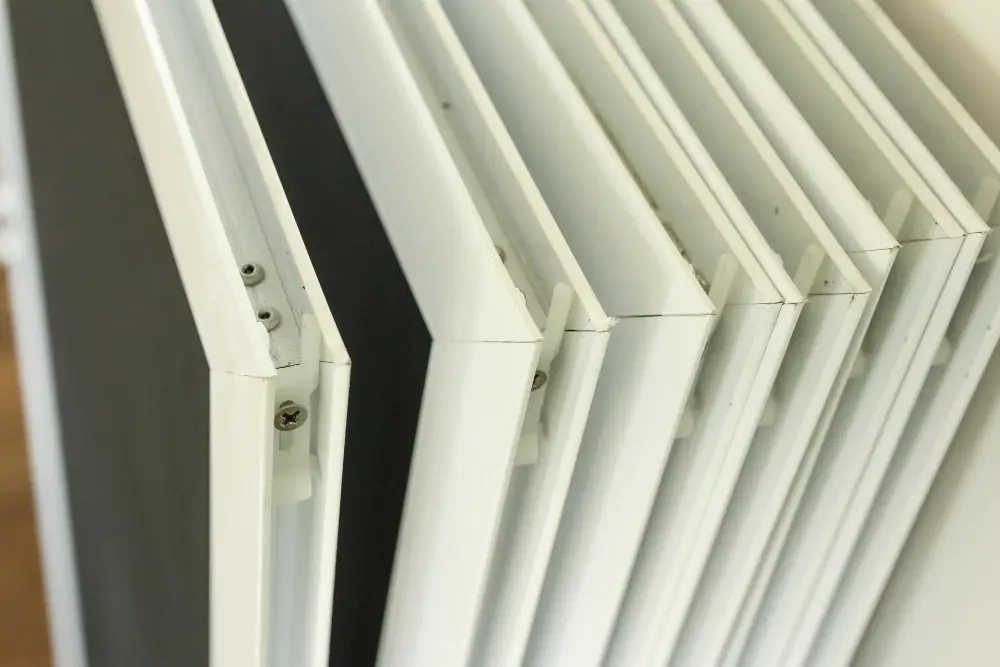
The most common materials used in window screen construction include fiberglass, aluminum, solar mesh, bronze mesh and stainless steel. These materials offer different levels of durability and protection against insects.
Fiberglass is the most popular material for window screens due to its affordability and flexibility. It’s also easy to install and maintain.
Aluminum is another popular choice because it’s lightweight yet durable enough to withstand harsh weather conditions.
Solar mesh is designed specifically for blocking out harmful UV rays while still allowing natural light into your home. Bronze meshes are known for their strength and durability while stainless steel meshes provide superior resistance against corrosion.
Fiberglass Screens
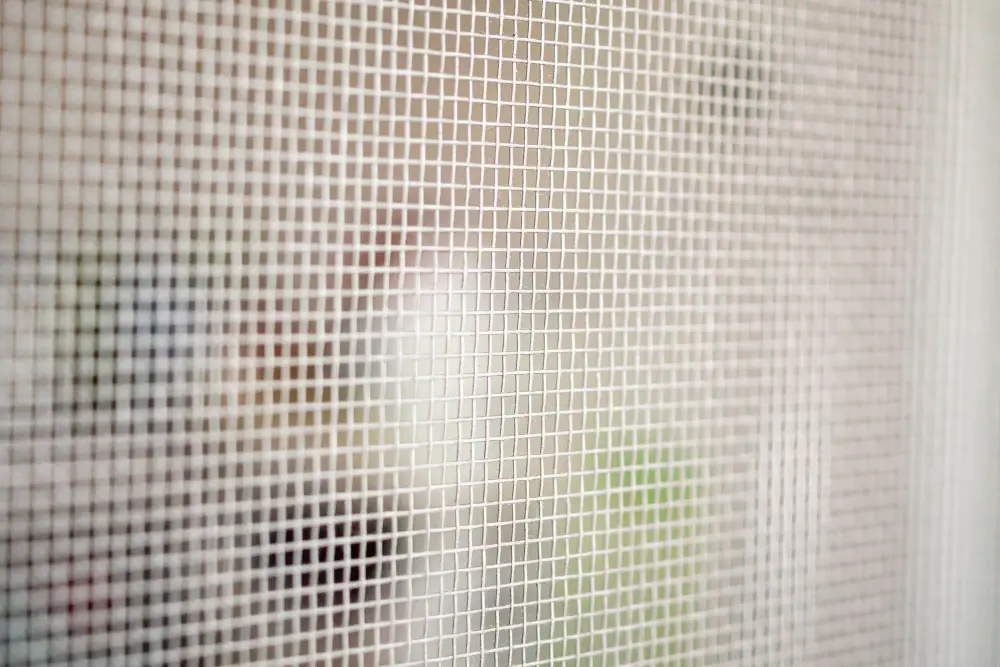
Fiberglass screens are made from woven strands of glass fibers coated with a protective vinyl to make them more durable and resistant to damage. They are lightweight, easy to install, and affordable.
Fiberglass screens come in different colors, but the most popular ones are charcoal and gray because they offer better visibility than other colors. They also provide good airflow while keeping insects out.
However, fiberglass screens have some downsides too. They can easily tear or puncture if not handled carefully or exposed to harsh weather conditions such as hailstorms or strong winds.
Also, they tend to sag over time due to their low tensile strength compared with other screen materials like aluminum.
Aluminum Screens
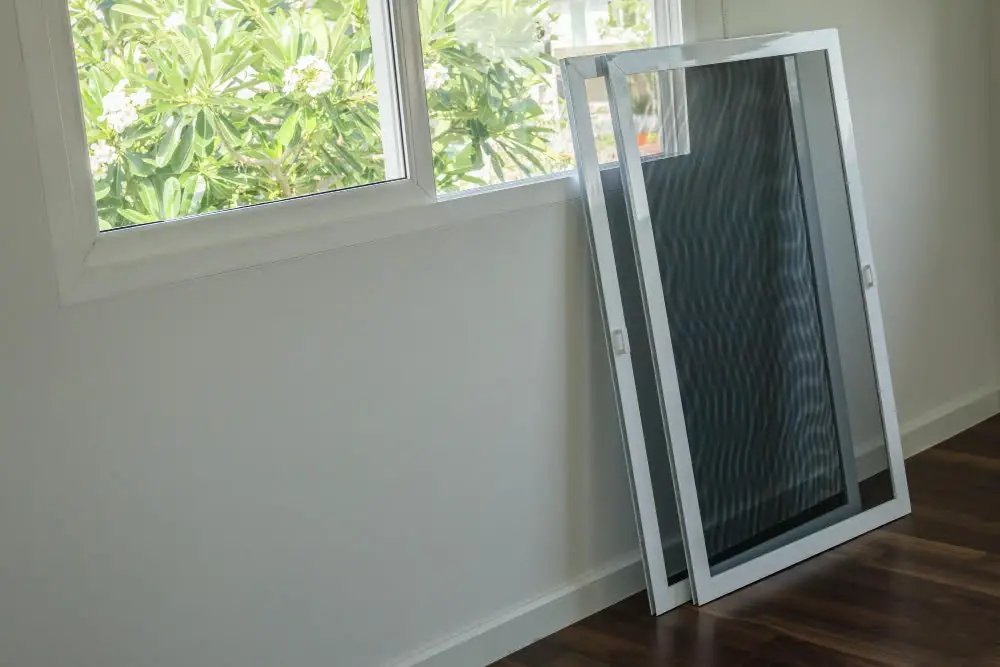
Aluminum screens are lightweight, durable, and resistant to rust and corrosion. They’re also affordable and easy to install.
However, one downside of aluminum screens is that they dent easily when hit by objects or strong winds. This can cause the screen mesh to sag or tear over time if not repaired promptly.
Despite this drawback, many homeowners still prefer aluminum screens because they provide excellent visibility while keeping insects out. Plus, their affordability makes them a practical choice for those on a budget.
Solar Screens
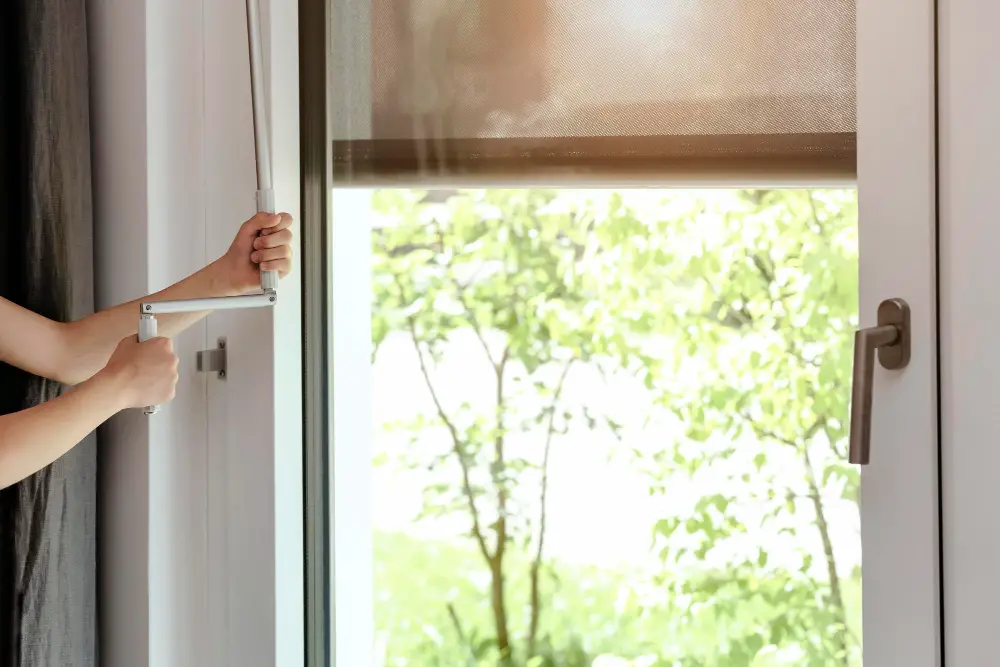
These screens are made of a special material that blocks out sunlight and reduces heat gain, making them ideal for hot climates or rooms with large windows. Solar screens come in different colors and densities to suit your needs.
While they offer excellent energy efficiency benefits, solar screens do have some drawbacks. They may reduce visibility from inside the house during daylight hours and can make it difficult to see outside at night when lights are on indoors.
Bronze Screens
They are also known for their durability and resistance to corrosion, making them an excellent choice for coastal areas or places with high humidity levels. Bronze screens offer good visibility while still providing protection against insects.
However, bronze screens tend to be more expensive than other materials such as fiberglass or aluminum. They may also require more maintenance since they can tarnish over time if not properly cared for.
If you’re looking for a window screen material that is both stylish and durable, bronze might be the right choice for you.
Stainless Steel Screens
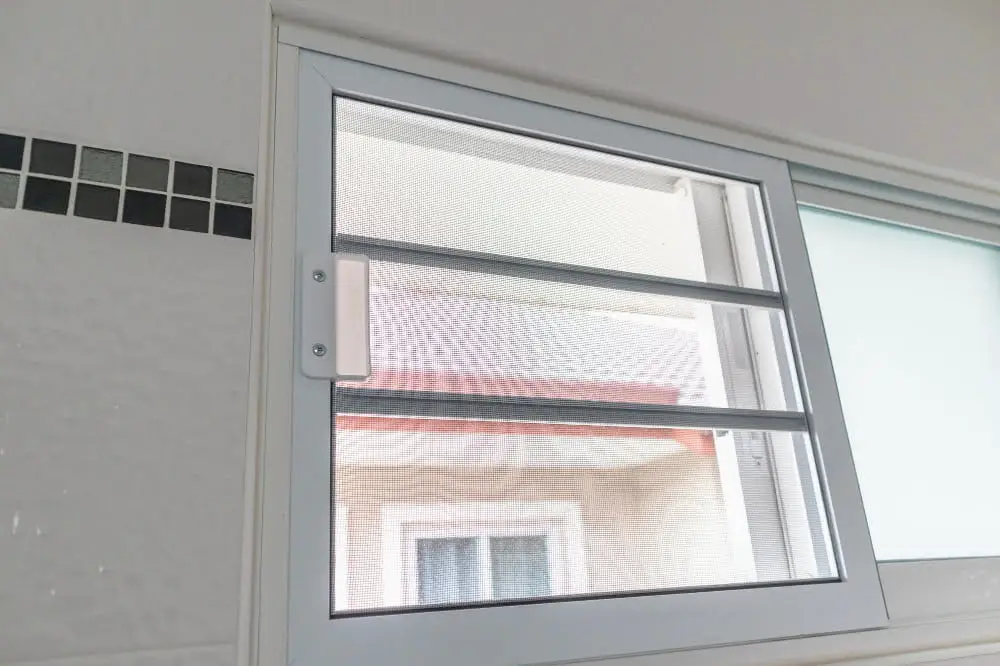
These screens are made of high-quality stainless steel wire mesh that is resistant to corrosion, rust, and other environmental factors. They offer superior strength compared to other materials like fiberglass or aluminum.
One of the main advantages of using stainless steel screens is their ability to withstand harsh weather conditions without deteriorating over time. They also provide better protection against insects than traditional mesh fabrics due to their smaller weave size.
However, there are some downsides associated with these types of window screens as well. Stainless steel can be more expensive than other materials used in making window screens such as fiberglass or aluminum.
They may not be suitable for areas with high levels of saltwater exposure since it can cause discoloration on the surface.
Pet-Resistant Screens
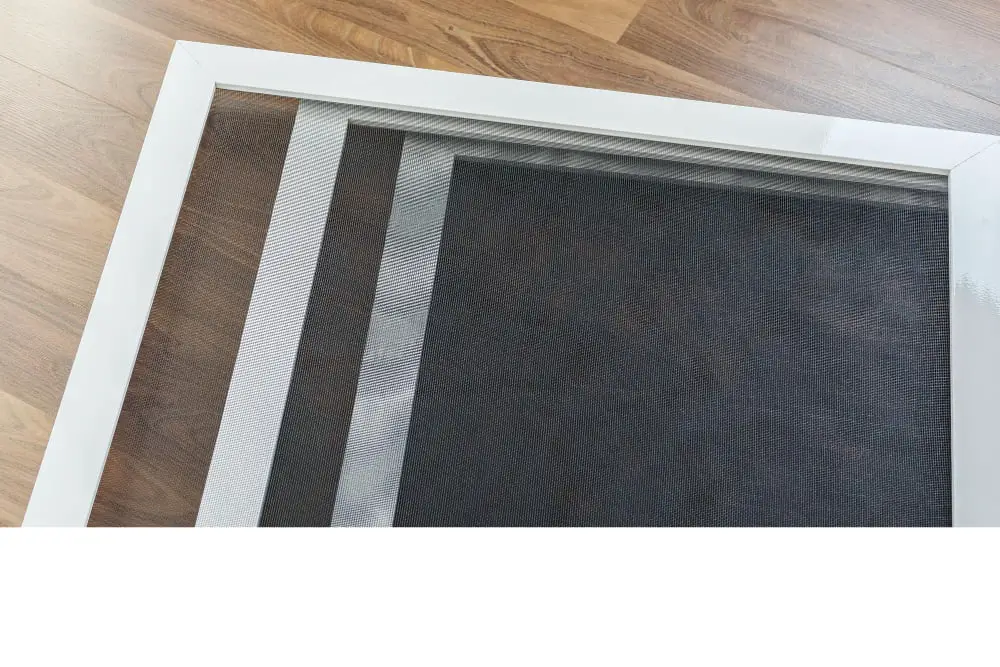
That’s where pet-resistant screens come in handy. These types of screens are made with extra-strong materials that can withstand scratches and bites from pets without tearing or breaking.
Pet-resistant screens are typically made of vinyl-coated polyester or other durable materials that make them more resistant to damage than standard fiberglass mesh. They also have a tighter weave pattern, which makes it harder for pets to claw through the screen.
While these types of window screens may cost more than traditional ones, they offer long-term savings by reducing the need for frequent repairs and replacements due to pet damage. If you have active pets at home who love spending time near windows, investing in pet-resistant window screens is an excellent choice.
Retractable Screens
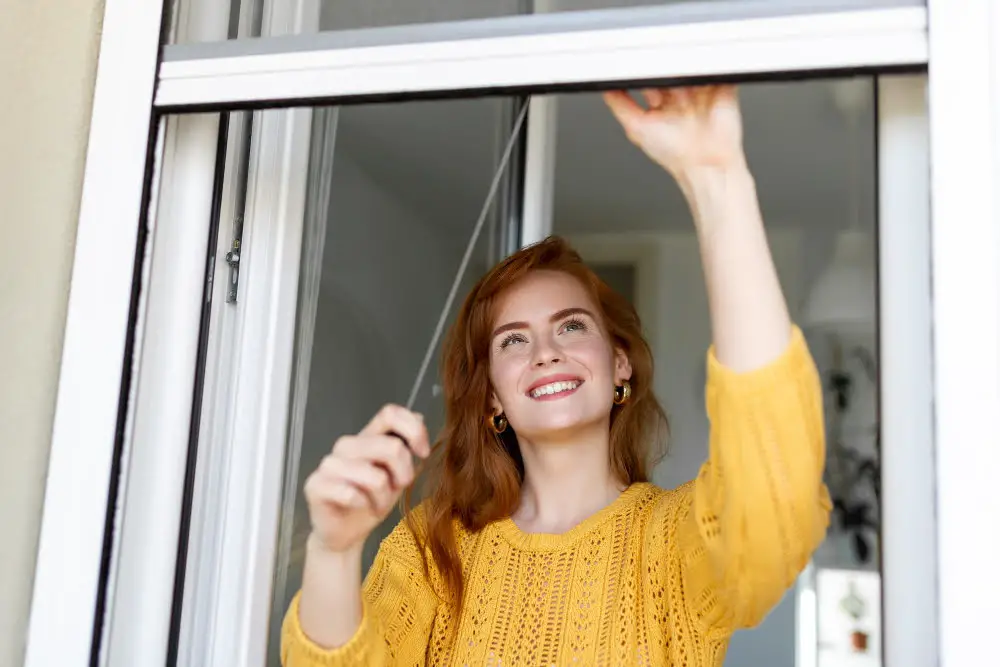
These types of screens can be easily retracted when not in use, providing an unobstructed view and allowing more natural light into your home.
One advantage of retractable screens is that they come in different sizes and shapes, making them suitable for any type or size of window. They also offer flexibility as you can choose to have them installed on either the interior or exterior side of your windows.
However, one disadvantage is that they tend to be more expensive than traditional fixed-frame screen options. Retractable screen systems require regular maintenance such as cleaning and lubrication to ensure smooth operation over time.
Adjustable Screens
These types of screens can be adjusted to fit different sizes and shapes of windows, making them versatile and convenient. They are also great for those who like to change the look of their home frequently or move around furniture that may obstruct the view from certain windows.
One type of adjustable screen is called a “flexible frame” screen, which has an expandable frame that can be adjusted by pulling on its corners until it fits snugly into your window opening. Another type is called a “retractable” screen, which rolls up when not in use and can easily be pulled down when needed.
While adjustable screens offer many benefits, they do have some drawbacks as well. For example, they may not provide as much protection against insects or other pests compared to fixed-frame screens because there may be gaps between the flexible material and the window frame where bugs could enter.
Polyester Screens
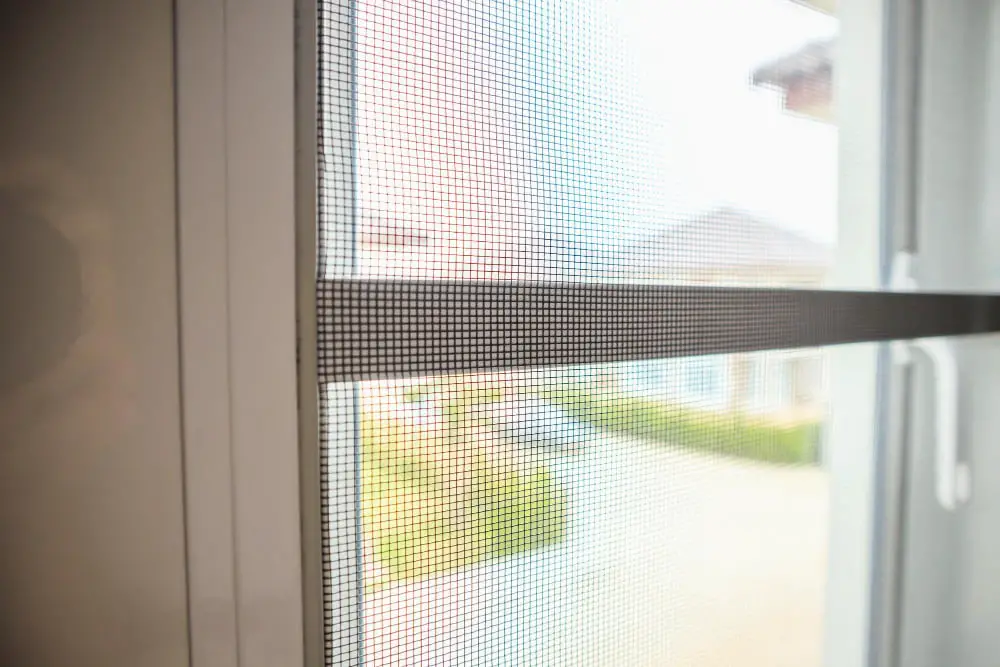
They are made from a synthetic material that is resistant to mildew and rust, making them ideal for areas with high humidity or saltwater exposure. Polyester screens also have good visibility and airflow, allowing you to enjoy the view outside while keeping insects at bay.
One of the main advantages of polyester screens is their durability. They can withstand harsh weather conditions without tearing or fading, which means they require less maintenance than other types of screen materials.
However, one downside to polyester screens is that they may not be as strong as some other materials like aluminum or stainless steel. This means they may not be suitable for homes with pets who might scratch at the screen.
Different Kinds of Window Screen Mesh Explained
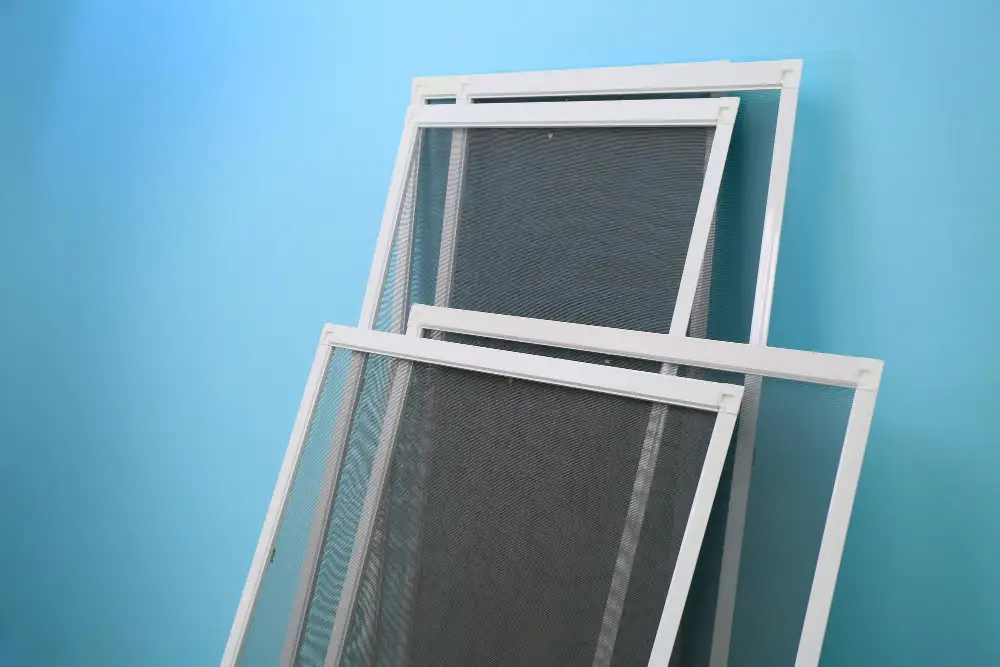
The mesh size and material can affect how much light and air pass through while keeping insects out. There are different types of screen meshes available in the market, each with its own set of benefits.
Fiberglass Mesh: This type of mesh is made from woven strands of fiberglass coated with PVC for added durability. It’s lightweight, easy to install, and affordable.
Aluminum Mesh: Aluminum screens are more durable than fiberglass ones but also heavier. They’re resistant to rusting or corrosion making them ideal for coastal areas where saltwater can cause damage.
Solar Screens: These screens have a tighter weave that blocks up to 90% UV rays from entering your home while still allowing you a clear view outside.
Bronze Mesh: Bronze screen meshes offer excellent durability as they don’t corrode easily like aluminum does over time; however, they tend to be more expensive than other options on this list.
Stainless Steel Meshes: Stainless steel offers superior strength compared with other materials used in window screening; it’s perfect if you live in an area prone to high winds or hailstorms as it won’t tear easily under pressure.
Pet-Resistant Screen Meshes – Pet-resistant screen meshes come equipped with extra-strong fibers designed specifically for pets who love scratching at windows or doors!
Polyester Screen Material – Polyester provides excellent visibility without sacrificing airflow into your home!
Choosing the right kind of window screen material depends on various factors such as budget constraints and environmental conditions around your house.
Mesh & Strand Size for Screen Performance
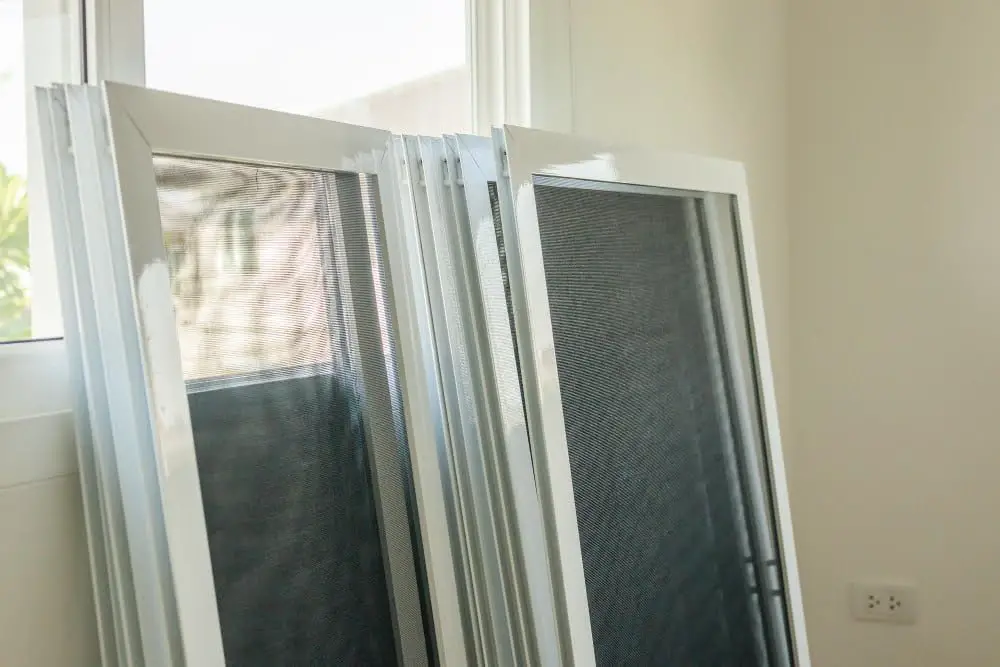
The mesh refers to the number of holes per square inch, while the strand size is the thickness of each individual thread used to weave the screen. A smaller mesh with a higher number of holes per square inch provides better protection against small insects like gnats and no-see-ums, but it can also reduce airflow.
On the other hand, larger meshes with fewer holes provide more ventilation but may not be as effective at keeping out tiny bugs.
Similarly, thicker strands are stronger and more durable than thinner ones but can obstruct your view or reduce light transmission through your windows. Thinner strands allow for better visibility and increased natural light penetration into your home; however they may not last as long or withstand harsh weather conditions.
Getting the Most From Your Mesh Window Screens
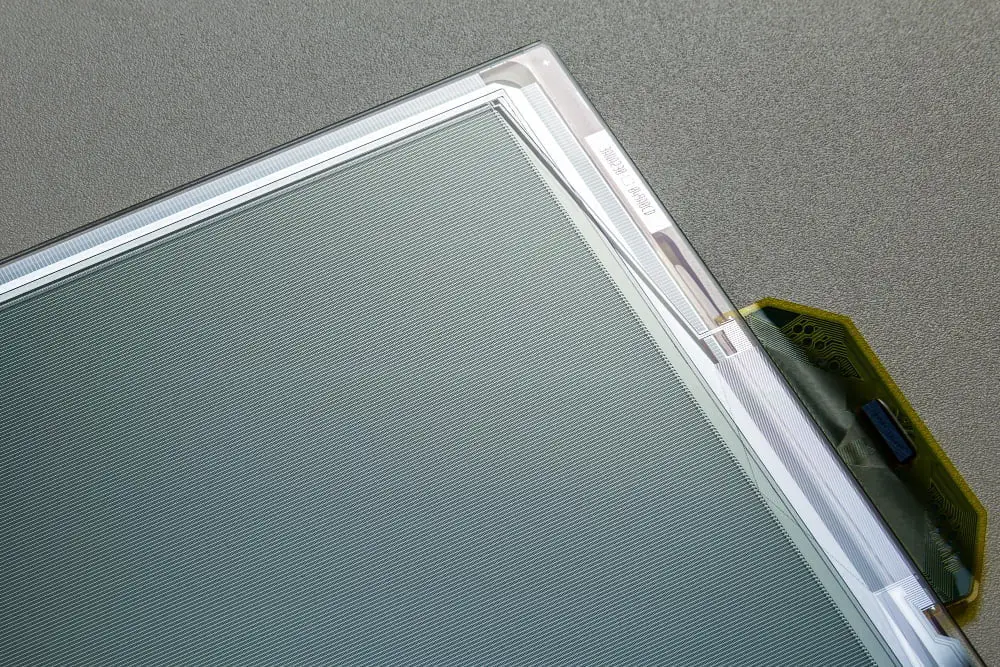
Not all mesh screens are created equal. To get the most out of your window screens, it’s important to choose the right material and maintain them properly.
One way to maximize the effectiveness of your mesh window screen is by choosing a fine-meshed screen with smaller strand sizes. This type of screen provides better protection against tiny insects like gnats and no-see-ums that can easily slip through larger meshes.
Another factor that affects how well your mesh window screen performs is its placement on the windowsill or frame. Screens should be installed tightly so there are no gaps between them and the frame or sill where bugs can enter.
DIY Window Screens
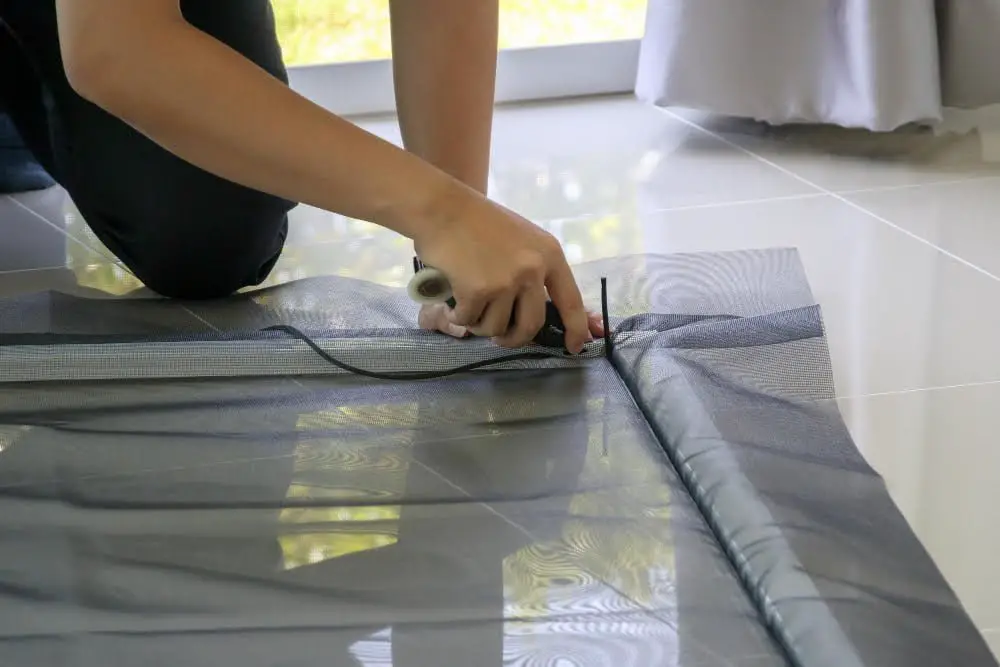
You’ll need to purchase the right materials, including screen frames, mesh fabric, spline (the rubber cord that holds the mesh in place), and tools such as a utility knife or scissors.
To start building your window screen frame from scratch requires some carpentry skills. However, if you prefer an easier option for DIY projects or don’t have access to power tools like saws and miter boxes then pre-made kits are available at most hardware stores.
Once you’ve assembled your frame using either method above mentioned methods it’s time to attach the mesh fabric by stretching it over one side of the frame before securing with spline on all four sides.
Caring and Maintenance
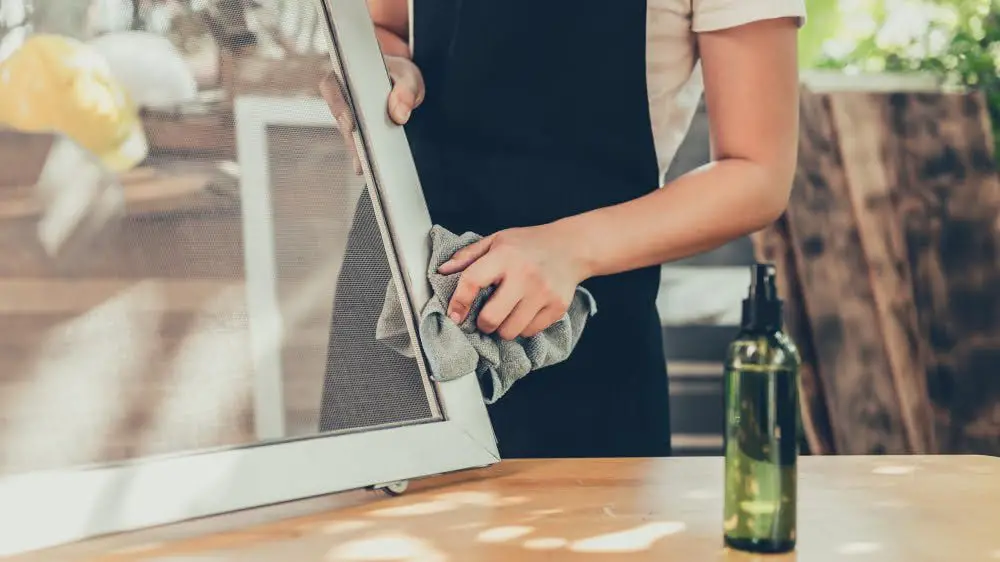
Regular maintenance can help prolong the life of your screens and keep them looking new.
To clean your window screens, start by removing any loose dirt or debris with a soft-bristled brush or vacuum cleaner attachment. Then mix a solution of mild soap and water in a bucket.
Dip a soft cloth into the soapy water and gently scrub both sides of each screen until they’re clean.
Avoid using harsh chemicals or abrasive cleaners as they can damage some screen materials like fiberglass mesh. Also, never use pressure washers on window screens as this could cause tears in the mesh.
If you notice any holes or tears in your screen material during cleaning, repair them immediately before they get worse. Small holes can be patched up with adhesive tape while larger ones may require replacement screening material altogether.
Screen Repair and Replacement
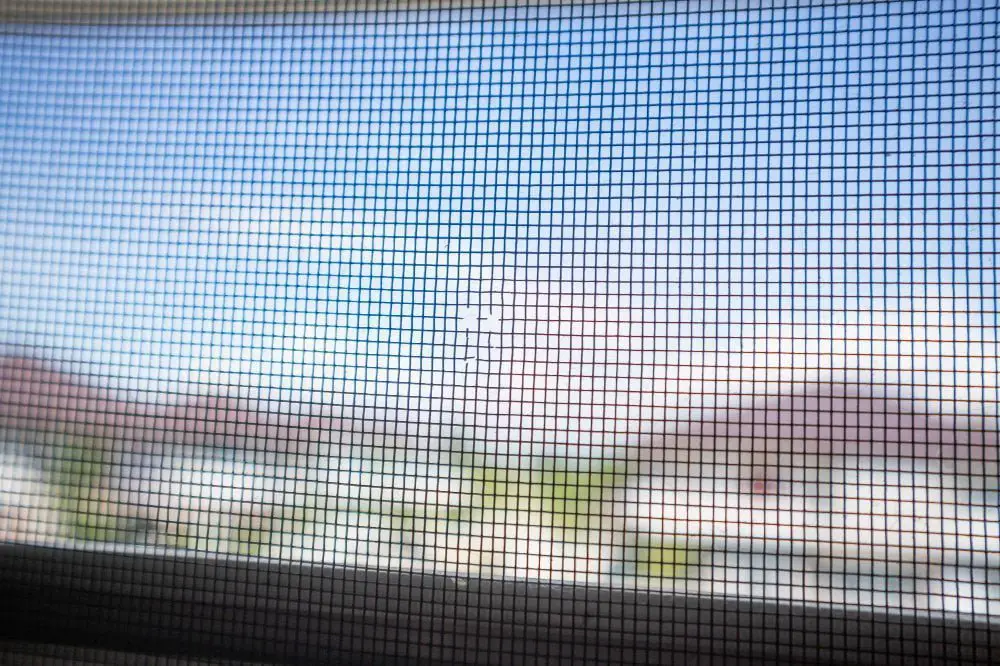
Whether it’s due to harsh weather conditions or accidental tears, a damaged screen can compromise the effectiveness of your window in keeping out insects and debris. Fortunately, repairing or replacing a screen is relatively easy.
For minor damages such as small holes or tears, you can use a patch kit that comes with adhesive patches to cover up the damage. For larger damages like bent frames or ripped mesh fabric that cannot be repaired using patches, replacement may be necessary.
When replacing your window screens entirely, make sure to measure accurately before purchasing new ones so they fit perfectly into your windows’ frames. You also have the option of hiring professionals for repair and replacement services if you’re not confident in doing it yourself.
Advantages of Window Screens
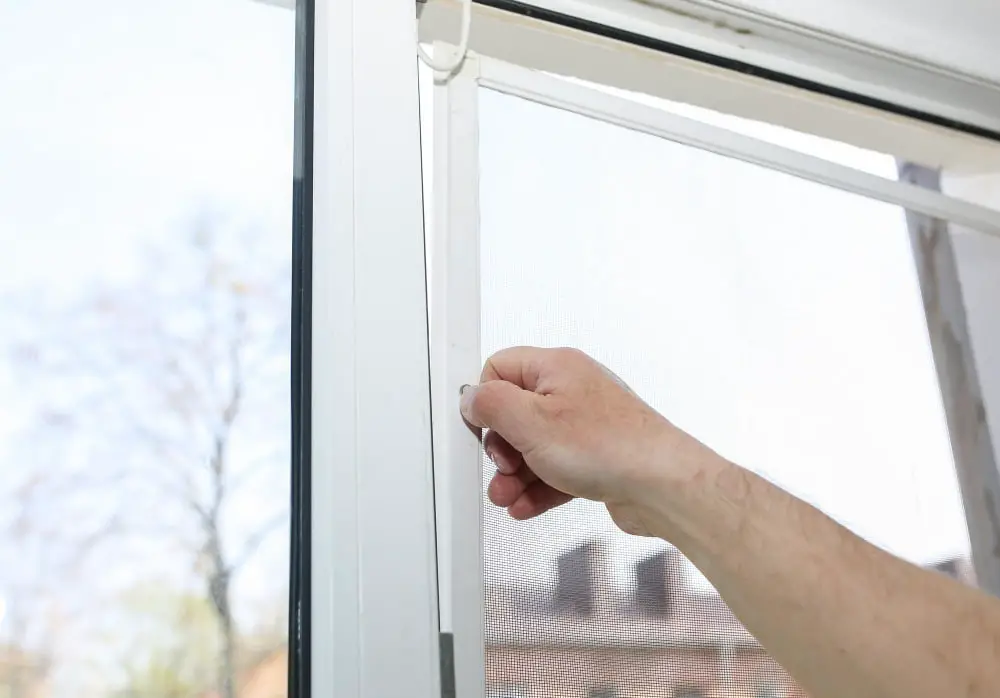
First and foremost, they allow fresh air to circulate through your home while keeping out unwanted insects like mosquitoes, flies, and wasps. This is especially important during the warmer months when you want to enjoy the breeze without worrying about bugs invading your space.
Another advantage of window screens is that they can help reduce energy costs by allowing natural ventilation instead of relying on air conditioning systems. Screens also provide an additional layer of protection against debris or objects flying into your home during storms or high winds.
Furthermore, some types of window screens such as solar screens can block harmful UV rays from entering your home while still allowing light in. This not only protects you and your family from sun damage but also helps keep furniture and carpets from fading due to prolonged exposure to sunlight.
Disadvantages of Window Screens
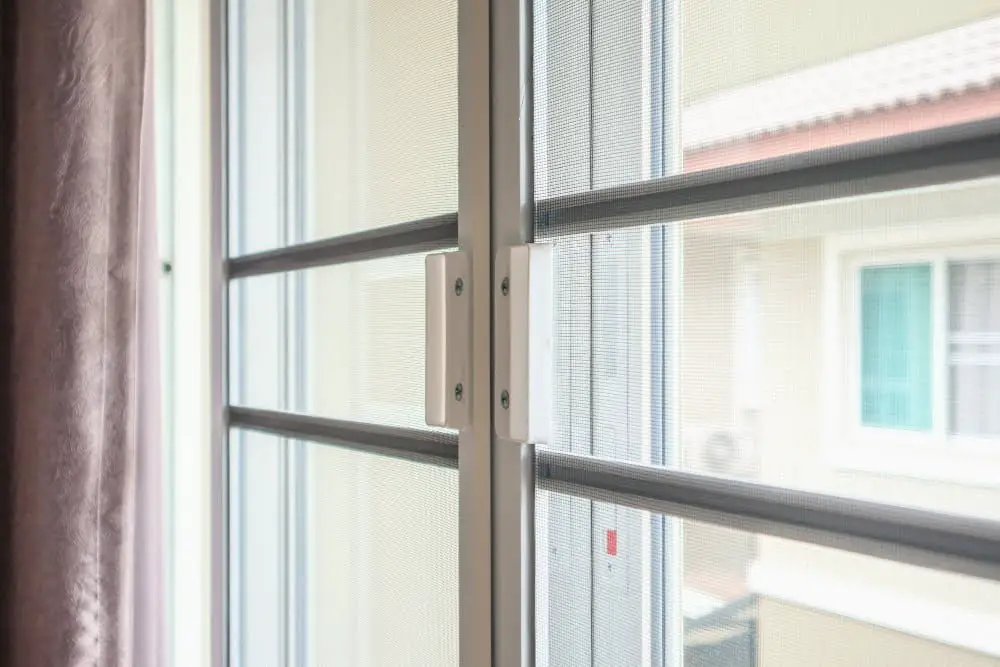
One of the most significant drawbacks is that they can reduce the amount of natural light that enters your home. This can be especially problematic if you have small windows or live in an area where sunlight is limited.
Another disadvantage of window screens is that they require regular cleaning and maintenance to keep them functioning correctly. Over time, dirt and debris can accumulate on the screen mesh, reducing its effectiveness at keeping insects out.
Some types of window screens may not be as durable as others and may need frequent replacement or repair. For example, fiberglass screens are prone to tearing if subjected to excessive force or pressure.
Despite these downsides, however, it’s important to remember that window screens offer many benefits for homeowners looking for fresh air without unwanted pests entering their homes.
FAQ
What is the best material for window screens?
The best material for window screens is aluminum, as it is rust-resistant, doesn’t sag, and is more durable and tear-resistant than fiberglass.
What material are screen frames made of?
Screen frames are made of materials such as aluminum, vinyl, and fiberglass.
Are window screens made of aluminum?
Window screens are commonly made of aluminum, which is more expensive than other materials but offers greater durability and longevity against the elements.
Which is better aluminum or fiberglass screen?
Aluminum screen is more durable than fiberglass screen but may be harder to install and prone to creasing and denting, with oxidation occurring in coastal areas.
What benefits do different window screen materials provide?
Different window screen materials provide benefits such as durability, visibility, insect protection, and airflow control.
How do solar screens differ from traditional window screens in terms of materials?
Solar screens differ from traditional window screens in terms of materials as they utilize specialized fabric or mesh designed to block sunlight and reduce heat, whereas traditional screens utilize standard mesh materials for basic insect protection.
What factors should be considered when choosing a window screen material for a specific location or climate?
When choosing a window screen material for a specific location or climate, consider factors such as durability, visibility, weather resistance, and ease of maintenance.
Recap
